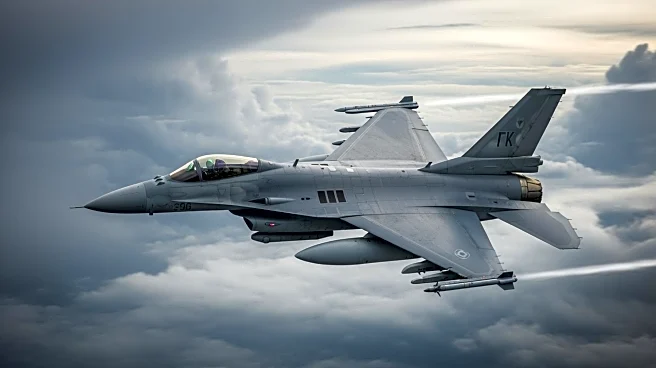What's Happening?
Two Russian military aircraft entered Lithuania's airspace for about 18 seconds on October 23, 2025. The aircraft, an Su-30 fighter jet and an Il-78 refueling tanker, were reportedly on a training mission when they crossed into NATO member Lithuania from
Kaliningrad. Spanish Eurofighter Typhoon jets from NATO's Baltic Air Police were scrambled in response. Lithuania's President Gitanas Nausėda condemned the violation as a breach of international law and territorial integrity. The incident follows a series of airspace violations in the region, raising concerns about Russian aggression.
Why It's Important?
The breach of Lithuanian airspace by Russian aircraft highlights ongoing tensions between NATO and Russia. Such incidents raise questions about the alliance's preparedness to counter growing Russian aggression. NATO's swift response underscores its commitment to defending member states' territorial integrity. The situation reflects broader geopolitical dynamics, with Russia's actions prompting increased vigilance among NATO and EU countries. The incident also emphasizes the importance of strengthening air defense capabilities in the region.
What's Next?
NATO and EU countries are likely to enhance their air defense readiness and coordination to deter future violations. Lithuania's Ministry of National Defence may take diplomatic actions, such as summoning Russian representatives to address the breach. The incident could lead to further discussions within NATO about strategies to counter Russian aggression and protect member states. As tensions persist, the alliance may consider additional measures to strengthen its presence in the Baltic region.
Beyond the Headlines
The repeated airspace violations by Russian aircraft in the Baltic region raise questions about international law and the rules governing airspace sovereignty. These incidents highlight the strategic importance of the area and the challenges of maintaining regional security. The situation underscores the need for diplomatic efforts to address underlying tensions and prevent escalation.

















